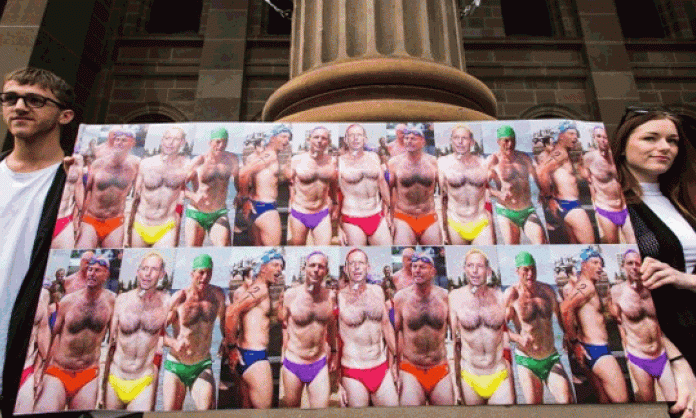“Members opposite will want the politicians to decide, this government wants the people to decide.”
Tony Abbott’s abrupt conversion to the cause of direct democracy might be a transparently cynical attempt to derail a parliamentary vote granting marriage equality, but hell, let’s go with it.
In fact, let’s extend it to a few more areas of public policy.
After all, it’s not just marriage equality on which there is an overwhelming majority opposed to government policy. A survey on social attitudes conducted by the ANU last year showed that a stunning 81 percent of people think more money should be spent on public health, as against just 6 percent who think it should be cut.
Let’s have a plebiscite on that. Or on education spending: 73 percent back more public funding. A penalty rates referendum? Given that 81 percent of people back them, any move to abolish penalty rates should definitely go to the people.
But maybe it is unfair on poor Tony to focus on pesky things like domestic economic and social policy, about which most people clearly don’t know what is good for them. Perhaps, given that he considers wars on the other side of the planet his personal specialty, foreign policy referendums would be a better option for producing a result to his liking?
Or maybe not. Only 36 percent of people approve of “sending more Australian troops to Iraq to help train Iraqi forces fighting Islamic State militants”, whereas 50 percent are opposed. Damn. Of course, the problem wouldn’t exist if we’d had a referendum in 2003 on the question of going to war with Iraq in the first place.
The seemingly bizarre attempt by Abbott to divert attention from the cause of marriage equality by proposing a national vote on the question may have been an attempt to emulate Howard’s tricky-dicky referendum on the republic, which managed to pose the question in a manner that ensured its defeat.
Or it might really be the case that Abbott believes, as do the nutters like frontbench Liberal MP Concetta Fierravanti-Wells, that there is a “silent majority” opposed to marriage equality (presumably so silent they can’t bring themselves to answer questions in opinion polls). On this issue, like many others, popular opinion is a mile to the left of the policies pursued by both parties in parliament. That’s why, when it comes down to it, the right is profoundly hostile to democracy in its real sense – rule by the people. The version of democracy it prefers is the kind where only properly qualified members of the establishment are entitled to make decisions.
So, much as plebiscites on anything and everything would be a welcome change from the charade of democracy that goes on in parliament, don’t hold your breath waiting.





